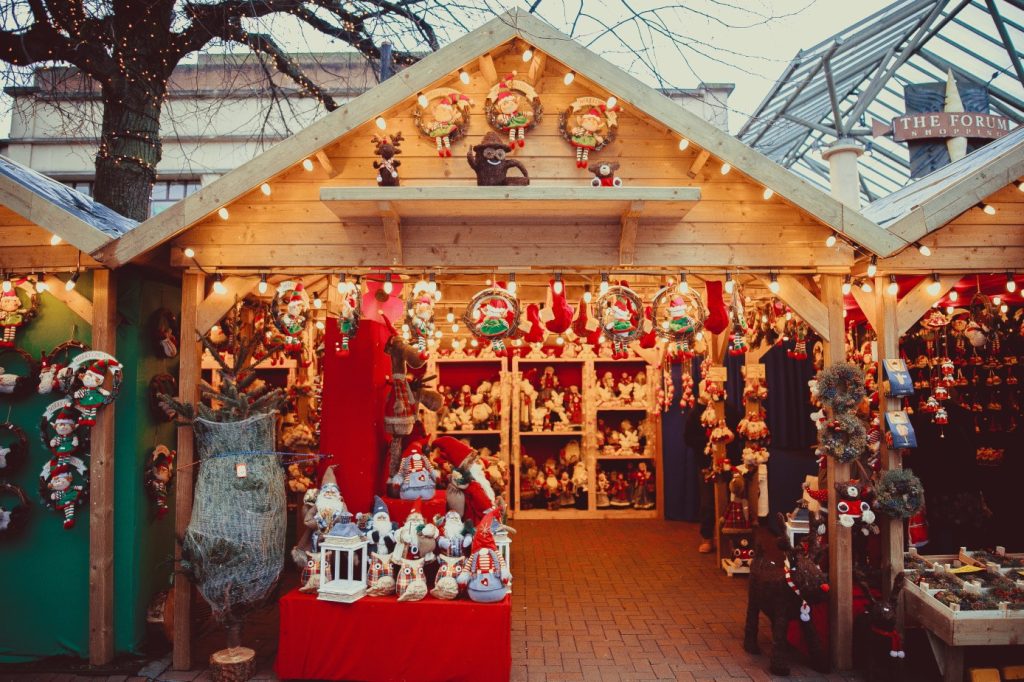October 6th, 2022 by J B
Tis the season, for seasonal businesses
Filed in: Merchant Accounts | 1 comment
The seasonal ramp-up is about to begin and for many businesses that means opening for the first time in months, or even expanding operations for seasonal events. If you are a seasonal business or looking to expand your existing business for trade shows and events over the coming months now is the time to start getting prepared. It seems that every year there are many businesses caught off guard by the rapidly approaching sales cycle, so we wanted to put out a reminder to get your payments system tested and operational before its crunch time.
Where to start:
We recommend that you start doing these things at least 2 weeks before you plan to start processing. Finding out that you have payment issues a few days before an event may not be enough time for an adequate resolution. If you find out that your account has been closed due to inactivity, or that a payment device has decided it’s taken its last transaction, you want to have extra time.
If your business is seasonal and your processor supports seasonal closures, or you fully close your account at the end of your season, you will want to touch base with your provider and make sure your account is seasonally opened and ready for transactions.
Once you believe your account to be ready to process then it’s time to test the specific devices that you will be using for events and seasonal expansion. The idea is to test not only if the device works, but also your and your employee’s understanding of the device so you can work out any issues ahead of game time.
Device Testing:
We recommend powering up your devices and connecting them at your business or home and processing a few test transactions and a couple of batches. It’s important to not just run a few sales and a batch and then call it a day. Run a couple of sales, process a void, then settle. Then start again with a couple of sales and process a return, then settle. You want to keep these under $1.00 per transaction. Personally, I prefer to start with a $0.01 transaction and increase that transaction by $0.01 on each additional sale. I know it will cost you a dollar or two in testing, but better to spend a couple of dollars confirming everything now, than scrambling at the last minute.
Next is testing your ability to connect your device to different networks whether that’s your own network, wireless hot spot, phone network, or a connection provided by a venue. Setting up at an event or prepping for a seasonal rush is exciting yet nerve-racking and is generally enough to deal with on its own. You don’t want to be calling tech support on top of everything else you will be handling.
You will want to confirm with any venue what connectivity options are available and make sure your device supports at least one of those options. When at an event I always recommend getting an ethernet drop if they give you the option and your device supports ethernet. I know sometimes the venues charge ridiculous rates for a data drop, however, I have seen it time and time again when a venue overloads a WiFi network, and some devices are just not able to process.
Once you know what connectivity option(s) you have, you need to make sure you understand how to set your devices to communicate on each of those options. Again, a couple of weeks before the event is the best time to contact tech support and confirm what connectivity options your devices have and learn how to quickly and effectively switch between connectivity options.
Ethernet and/or WiFi Devices:
Ethernet is normally the easiest as you just plug a cable into your device. That said, if your device normally operates on Wifi, you need to know how to switch between the two connection types as needed. You should practice connecting to different WiFi and Ethernet networks, so that you are not trying to figure it out while at an event. This is a small thing that catches many merchants off guard every year. At the office their device is plugged into ethernet, then they get to an event and can’t figure out how to connect to WiFi or vice versa. Having this down will prevent a lot of trouble for you.
Dial-up only Devices:
It’s time for a new device. Dial-up is a handy backup to other connectivity types. Dial-up has its own unique sets of issues and is arguably the worst possible connection. I know a few hundred dollars can be a lot for a new device, but it could be the difference between a successful show and a complete failure.
That said, if you are short on time and you have to go with a dial-only device, confirm what settings your device will need to communicate. Some venues will require your device to dial a 9 before the phone number to reach an outside line. Some venues may have other requirements that you need to know prior to the event how to have your terminal configured so it works when you arrive.
Cellular Devices:
For merchants using a cellular device, go to the venue and make sure your device works at the venue prior to the event if at all possible. If you can get inside the venue and get to where your booth is before testing, that is ideal. Keep in mind that cellular networks can get congested when you have a ton of people in one area, so if the venue offers some other form of data connection we recommend taking them up on that offer. You want additional communication options available to you if the cell networks get congested. You will also need to know how to change your terminal from Celluar to WiFi or Ethernet before going to the event. If you don’t know how to do that, call tech support prior to going to the event and practice changing that setting in the terminal so you know what to do if the need arises.
Backup Plan:
Have a backup plan or two or three. Things are going to come up, terminals are going to die, and cell networks are going to be overloaded. You can’t plan for every possibility but that doesn’t mean you shouldn’t be planning at all. Keep in mind most any processor would love to help you plan prior to being at an event, so take your ideas to your processor if you need help implementing them. Below are a few backup plan ideas.
Have a second terminal or device that is ready to process.
A backup device won’t fix communication issues, but it can save you if your terminal goes down. It doesn’t have to be a new device, if you have an older device just laying around ask your processor if it can be set up as a backup.
Establish an account with an additional processor.
This comes back down to options. Setting up a secondary processing platform can be a game changer. Don’t feel like you need to set up with two full-service processors. If you are a full-service customer that’s great, but there are many other services you can have at the ready that don’t cost you much or anything monthly to have ready. PayPal, Venmo, Cash App, Square, etc. are all great options. Even if you use one of those vendors as a primary vendor, set up a second one as a backup.
If you are with a full-service merchant provider for improved pricing, then yes sales you run on your backup system are probably going to cost you more. That said it’s better to spend a little more on each transaction to get through an event than to miss out on opportunities.
The more connectivity options the better:
It was stated earlier, but make sure you have as many connectivity options as possible. One overlooked option that can work with WiFi and sometimes with Ethernet devices is a wireless hotspot. Most smartphones today can act as a wireless hotspot. If the venue’s network goes down, switch your terminal over to your phone’s wireless hotspot.
You can also go to your wireless carrier a purchase a dedicated wireless hotspot.
Seasonal Recap:
Seasonal business comes down to preparation, and while you won’t ever be prepared for everything, you can certainly set yourself up for success. When it comes to your payment systems you need to remember 4 main things. 1. Confirm your account is in good standing and that your device(s) are performing properly. 2. Make sure you know how to switch between communication modes and networks. 3. Know what communication options will be available at an event. 4. Always have some backup plans.
Our next blog entry is our annual fraud prevention tips to remind businesses what they can do to protect themselves from the few bad actors out there who like to take advantage of the holiday rush.
We hope you all have a successful and joyous holiday season.







pest and termite control
The Merchant Account Blog